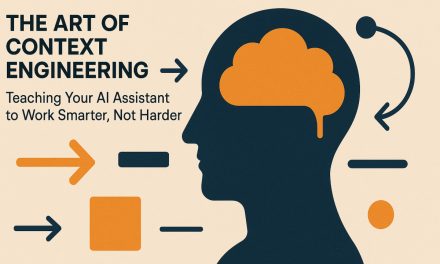Navigating the world of business is like traversing an ocean – vast, diverse, and full of unexpected challenges. However, the journey becomes more manageable with a trusty compass, and what better guide than the wisdom encapsulated in the top business books? Today, let’s unpack the treasure chest of these books, revealing 15 compelling themes that form the DNA of entrepreneurial success.
1. Value of Purpose and Vision
Books such as ‘Start With Why’ and ‘Zero to One’ underscore the significance of having a robust purpose and vision for your enterprise. Let’s consider SpaceX. Elon Musk’s vision isn’t just to manufacture and launch rockets; it’s to make human life multiplanetary. This vision fuels every decision and project at the company. Similarly, Disney’s vision isn’t about being the biggest entertainment company but creating universal joy and sparking imaginations worldwide. These visions guide their actions and inspire others to join their cause.
2. Power of Persistence
Persistence shines in ‘The Hard Thing About Hard Things’ and ‘Think and Grow Rich.’ Take JK Rowling, for instance. Numerous publishers rejected her manuscript for Harry Potter, but she persisted. Today, it’s a global phenomenon. Equally compelling is Thomas Edison’s story. His persistent experiments, despite multiple failures, led to the invention of the light bulb. Both examples emphasize that success often comes to those who persist against the odds.
3. Importance of People Skills
Books like ‘How to Win Friends and Influence People’ and ‘Never Eat Alone’ value people skills. Steve Jobs, despite his reputation for being difficult, had a charismatic personality that attracted talent and convinced people to buy into his vision. Alternatively, Oprah Winfrey’s empathetic and authentic interviewing style has made her one of the most influential people in the world. Both illustrate the importance of people skills in achieving success.
4. Necessity of Innovation
‘Innovator’s Dilemma’ and ‘Creativity, Inc.’ stress the importance of innovation. Consider the transformational change that the iPhone brought to the world of mobile devices. Similarly, Netflix’s innovative approach to content distribution disrupted the traditional cable TV industry. Both these companies thrived because they dared to innovate and change the status quo.
5. Customer Centricity
The central theme in ‘Psychology of Influence and Persuasion’ and ‘Rework’ is customer centricity. Amazon, with its motto of ‘Customer Obsession,’ revolutionized e-commerce by prioritizing customer needs. Alternatively, Zappos, with its legendary customer service, created a loyal customer base that led to its massive success. These companies remind us that putting the customer first is the key to a thriving business.
6. Agile Methodology and Continuous Improvement
Books like ‘Lean Startup’ and ‘Running Lean’ embrace the Agile methodology and the principle of continuous improvement. Toyota’s production system is a prime example of continuous improvement in practice. Also, Gmail’s evolution, from a basic email service to an integrated productivity suite, illustrates the power of continuous, iterative improvements.
7. Power of Positive Thinking
Books like ‘How to Think and Grow Rich’ and ‘The Obstacle is The Way’ focus on the power of positive thinking. Walt Disney, despite numerous setbacks and bankruptcies, never lost his optimistic spirit, eventually building the Disney empire. Similarly, Richard Branson’s positive outlook helped him build the Virgin Group despite various business failures. Their stories inspire us to maintain a positive mindset in the face of adversity.
8. Influence and Leadership
Themes of influence and leadership resonate in ‘Influence: The Psychology of Persuasion’ and ‘Lean Thinking.’ Martin Luther King Jr., with his leadership and influence, rallied millions behind the civil rights movement. Equally influential, Elon Musk’s leadership has guided teams across various industries, leading to groundbreaking products like Tesla electric cars and SpaceX rockets. Their influence and leadership have brought about substantial change.
9. Wealth Creation and Management
‘Wealth creation and management’ is the crux of ‘The Intelligent Investor’ and ‘Conscious Capitalism.’ Warren Buffet, through smart investment decisions, has created enormous wealth. Simultaneously, John Mackey, the CEO of Whole Foods, has shown how businesses can be profitable while maintaining ethical practices. These examples inspire us to approach wealth creation responsibly.
10. Value of Integrity and Ethics
Integrity and ethics, as emphasized in ‘Good to Great’ and ‘Conscious Capitalism,’ play crucial roles in sustainable success. The Body Shop, known for its ethical sourcing and animal-friendly products, has built its brand on integrity. Similarly, Patagonia’s commitment to environmental responsibility has earned it loyal customers and strong brand reputation. These companies demonstrate that business and ethics can, and should, go hand-in-hand.
11. Importance of Effective Communication
Effective communication, a recurring theme in ‘Words That Sell’ and ‘How to Win Friends and Influence People,’ is vital in all aspects of business. Apple’s marketing campaigns are great examples of clear and effective communication that resonates with their audience. On the other hand, leaders like Sheryl Sandberg stand out for their ability to communicate complex ideas in simple, relatable ways.
12. Need for Adaptability and Flexibility
Adaptability and flexibility are the lessons from ‘Switch’ and ‘Rework.’ Netflix’s shift from DVD rental to streaming and then to content production is a testament to its adaptability. On the other hand, Instagram started as a check-in app called Burbn. They pivoted and focused on photo-sharing, which eventually led to their meteoric success. These companies are sterling examples of the need to stay flexible and adapt to changing market conditions.
13. Encouragement of Entrepreneurial Mindset
‘Zero to One’ and ‘$100 Startup’ encourage an entrepreneurial mindset. Richard Branson started selling records out of the trunk of his car before founding Virgin Records. Similarly, Sara Blakely sold fax machines door-to-door before creating Spanx, a billion-dollar company. These stories inspire us to think entrepreneurially, irrespective of our circumstances.
14. Significance of Continuous Learning
The importance of continuous learning reverberates in ‘How to Read a Book’ and ‘Mastery (Robert Greene).’ Bill Gates, despite his success, is known for his commitment to learning, with his avid reading habits. Likewise, Elon Musk, who taught himself rocket science, highlights the power of self-learning. Their stories motivate us to commit to lifelong learning.
15. Emphasis on Grit and Resilience
‘Grit: The Power of Passion and Perseverance’ and ‘The Obstacle is the Way’ emphasize grit and resilience. J.K. Rowling, who faced numerous rejections and personal hardships before Harry Potter’s success, exemplifies grit. Similarly, Steve Jobs’s comeback to Apple after being fired from his own company epitomizes resilience. Their stories urge us to stay resilient and gritty, regardless of the challenges we face.
Unleashing these 15 themes from the treasure chest of top business books provides a roadmap to navigate the unpredictable sea of entrepreneurship. Remember, these aren’t just business lessons; they’re life lessons. So dive in, start exploring, and let your journey to success begin.





Recent Comments